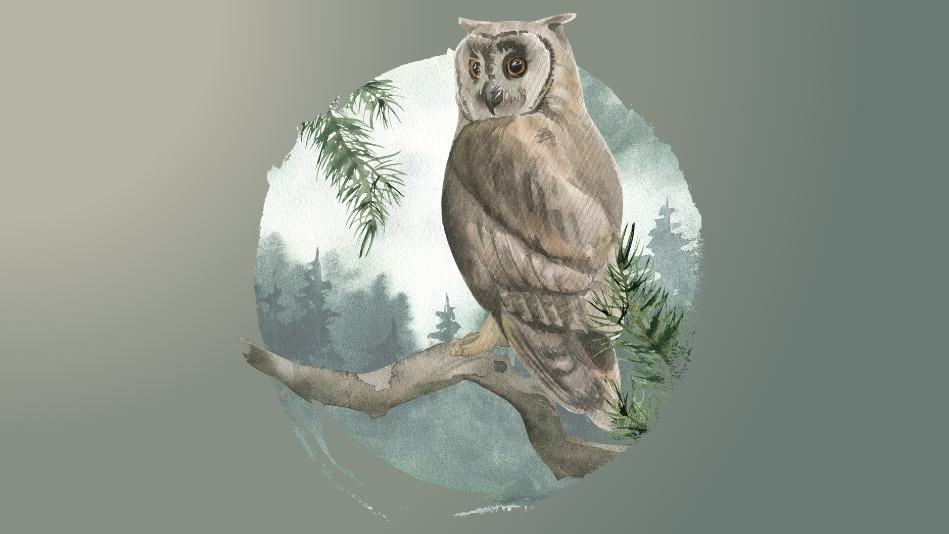How to Believe in Yourself—Even if You Sometimes Don't
Racked with self-doubt in a foreign city, Pulitzer Prize-winning author Jeffrey Eugenides found unexpected inspiration from a dream. Discover how a mysterious visitor helped him overcome anxiety and believe in himself again.

Photo: bolshoymaart/Canva Pro
In 1999, I moved with my wife and 8-month-old daughter from New York to Berlin. I'd been given an apartment to live in and a small stipend to survive on, compliments of the Berliner Künstlerprogramm, which has been bringing foreign artists to the city since 1961. Among the things I'd packed in my large suitcase was the unfinished manuscript of Middlesex. The fellowship had come at a fortunate time. Our landlord, a mean old man who owned the brownstone we lived in (hi there, Doug, still living alone?) was kicking us out for the offense of having a kid. We had nowhere else to go and little money in the bank. My book, which I'd been working on for a number of years already, was far from finished, and the more I tried to put on an appearance of painstaking, Flaubertian calm, the more my inner self began to betray me. The shakes I had at my desk could not be entirely blamed on the massive amounts of caffeine I was imbibing.
Moving to Berlin solved all these problems. We had a nice two-bedroom apartment in the sleepy neighborhood of Wilmersdorf. My wife and I slept in one bedroom, I worked in the other, and we converted the surprisingly spacious broom closet into a nursery for our daughter. Vladimir Nabokov, it turned out, had lived in Wilmersdorf during the 1920s. A building one block from us had a historical marker indicating that Albert Einstein had rented an apartment there, too. Good neighbors.
When you're writing a book, not going outside much during the day, time tends to blur. Though I liked Berlin and enjoyed the anonymity of living in a foreign city where nobody cared if I ever finished my book or not, my reprieve from literary anxiety was only temporary. At some point during our first or second year in Berlin, the physical symptoms I'd been suffering back in Brooklyn—a constriction in my chest, as though a corset were being tightened over my ribcage—returned. I grew irritable. More than usual, I mean. Sometimes when we were out bike riding, or pushing our daughter's stroller through the aisles of KaDeWe, the big department store in West Berlin, hoping she'd fall asleep so we could eat, I became paranoid that we'd left the gas stove on at home. Fearing that my computer and manuscript would go up in the blaze, I made us race home, unjustifiably furious with my wife the entire way, only to find the burner off and the apartment intact. Shut up in my office all day, coming out to stand on the balcony and stare moodily down at the wet leaves on the pavement, at night either self-absorbed and silent or trying to loosen myself up with multiple glasses of German beer—that's what I was like at the time. That's what I was like to live with.
And then, one night, I had a dream.
I know dreams are boring, but bear with me. This one was special. Plus, it's short. All that happened in the dream was that an owl, descended out of nowhere, seized me in its talons and blew into my mouth a single breath tasting of blood. That's it. The dream lasted no more than four or five seconds. But it was one of those dreams that seems somehow more real than a typical dream, as if it were playing out at a level just below my conscious mind, or as if it originated not from my mind at all but from a source outside of me. The owl, by the way, was gigantic. And not particularly realistic. In fact, the bird was stylized in the manner of a Klimt, with lozenges of color running up and down its wings and over its breast, and a large helmeted ceremonial head. Its eyes were fierce, omnipotent, bright yellow. It fixed these eyes on mine. When the owl lowered its beak to my lips, I opened my mouth. And then the owl exhaled one long forceful breath. With a whooshing sound, my lungs inflated. This inspiration had a taste: the mineral, meaty flavor of a predatory diet.
I awoke from this dream feeling that a message had been delivered to me. The great Owl in the Sky had taken a personal interest in me and my book. The owl had come to give me the power to write it.
Next: How coincidences really work



